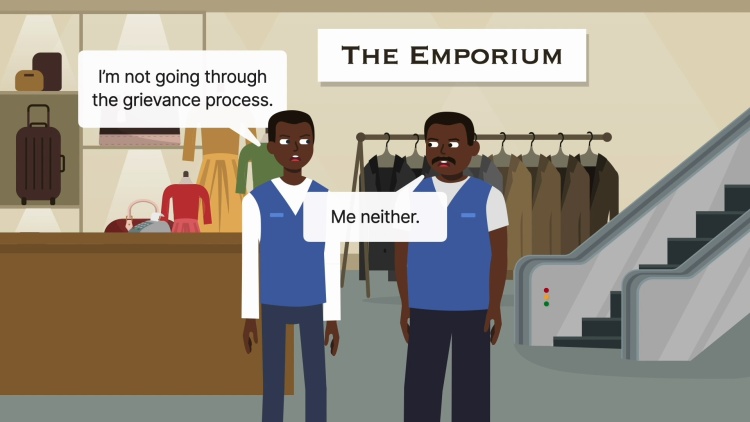Emporium Capwell Co. v. Western Addition Community Organization
United States Supreme Court
420 U.S. 50 (1975)
- Written by Rose VanHofwegen, JD
Facts
All employees at the Emporium Capwell Company (defendant) department store belonged to a union. The collective-bargaining agreement (CBA) between the union and Emporium prohibited strikes or lockouts and required complaints to follow a grievance and arbitration process. In response to repeated employee complaints about racial discrimination, the union prepared a report, conducted a meeting, and said it would process complaints to arbitration if necessary. But when the union and company convened the joint union-management adjustment board meeting the CBA required, four vocal Black employees objected and refused to participate. After trying unsuccessfully to negotiate directly with the president, protesting employees held a press conference, called company policy racist, and picketed and passed out handbills urging customers to boycott. A union representative and the company warned the employees to stop or face termination, then fired two employees who continued. Those two belonged to civil-rights organization Western Addition Community Organization (plaintiff), which challenged their termination under the National Labor Relations Act. The National Labor Relations Board found the act did not protect the employees’ conduct, making their termination lawful. The board reasoned that allowing individual negotiations would undermine exclusive collective bargaining, impede union efforts, and burden employers unreasonably. The appellate court reversed, reasoning federal law and national policy uniquely protected concerted action against racial discrimination. The Supreme Court granted review.
Rule of Law
Issue
Holding and Reasoning (Marshall, J.)
Dissent (Douglas, J.)
What to do next…
Here's why 905,000 law students have relied on our case briefs:
- Written by law professors and practitioners, not other law students. 47,100 briefs, keyed to 995 casebooks. Top-notch customer support.
- The right amount of information, includes the facts, issues, rule of law, holding and reasoning, and any concurrences and dissents.
- Access in your classes, works on your mobile and tablet. Massive library of related video lessons and high quality multiple-choice questions.
- Easy to use, uniform format for every case brief. Written in plain English, not in legalese. Our briefs summarize and simplify; they don’t just repeat the court’s language.





